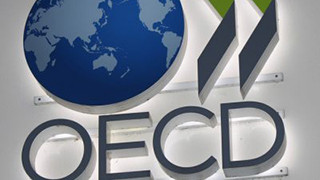 The success of the iTSCi Programme in contributing to breaking the link between mineral trade and conflict in central Africa has been highlighted in the key findings of a detailed report from the Organisation for Economic Co-operation and Development (OECD) discussed at the recent multi-stakeholder due diligence forum in Paris. The report, which looks at a number of supply chain initiatives developed in the last five years, notes that “on-the-ground implementation of the Guidance in mineral producing and trading areas is by far most advanced in the 3T sector” and praises the work carried out by iTSCi as “the only on-the-ground due diligence programme that has effectively brought Great Lakes minerals to the international market.”
The success of the iTSCi Programme in contributing to breaking the link between mineral trade and conflict in central Africa has been highlighted in the key findings of a detailed report from the Organisation for Economic Co-operation and Development (OECD) discussed at the recent multi-stakeholder due diligence forum in Paris. The report, which looks at a number of supply chain initiatives developed in the last five years, notes that “on-the-ground implementation of the Guidance in mineral producing and trading areas is by far most advanced in the 3T sector” and praises the work carried out by iTSCi as “the only on-the-ground due diligence programme that has effectively brought Great Lakes minerals to the international market.”
The OECD, whose mission is to promote policies that will improve the economic and social well-being of people around the world, highlighted in the report how “iTSCi has made remarkable progress and is the only on-the-ground traceability and due diligence programme that has to date been able to demonstrate a clear impact on mineral production and exports.” iTSCi’s work in the Great Lakes Region of Africa has led to an estimated 80,000 artisanal and small-scale miners – supporting an estimated 400,000 dependents – being granted access to the international market where they can sell their minerals freely.
The iTSCi Governance Committee is delighted with these comments which are a reflection of the commitment of the upstream 3T industry and the unique progress made by iTSCi and its partners since 2010. Reflecting on the progress made, Kay Nimmo, ITRI representative to the Governance Committee, explained during the Paris meeting “ITSCI had to find ways to practically implement the OECD guidance by addressing not only business issues relating to shared implementation of due diligence, but wider challenges associated with fundamental limitations in infrastructure, stakeholder capacity, remoteness and security,” adding that “On-the-ground support is vital to really make a positive difference.” These thoughts were echoed by the OECD Chief-of-Staff Gabriela Ramos who emphasised in her presentation that “Agreements make headlines but implementation brings change.”
Whilst this is welcome recognition of the achievements of iTSCi, we cannot be complacent. Further investment and support is always needed from donors and downstream tin users to ensure that the work to date continues to be built upon to bring even more positive results. An open letter describing restrictions in on the ground activity and funding resulting from the currently poor metal market conditions was issued in December 2015, a copy of which can be found here.
The full OECD report (COM/DAF/INV/DCD/DAC(2015)3/FINAL) was approved by the OECD Investment Committee and Development Assistance Committee in 2015, declassified and then published on 28th April 2016. It can be downloaded here.
